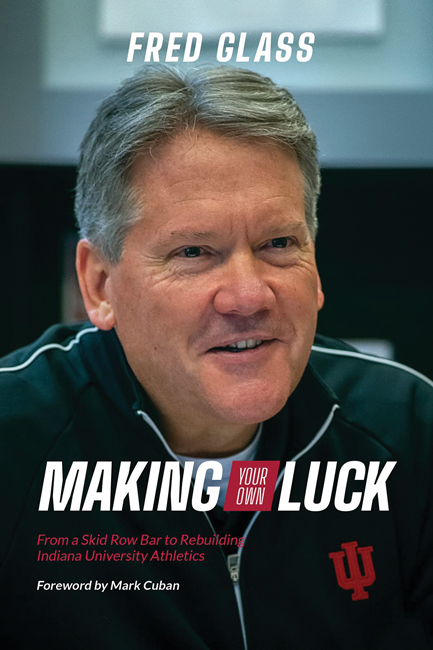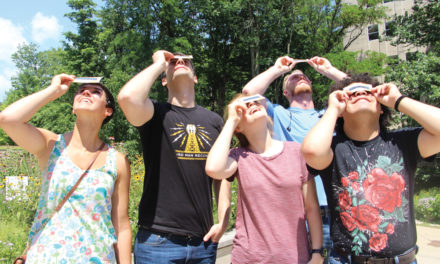
by RODNEY MARGISON
Former Indiana University Athletic Director Fred Glass was among the most unlikely candidates for that job—a practicing attorney with zero experience in leading an athletic department. But, as he explains in his upcoming memoir, Making Your Own Luck (IU Press), he came into the position with a wealth of ambition and a sports-fan’s love for all things IU, which was enough.
Making Your Own Luck is full of stories about Glass’ life and career before IU—including being chief of staff for former Governor Evan Bayh and leading Indianapolis’ successful bid to host Super Bowl XLVI—and provides the ultimate insider’s perspective on what it took to successfully lead the athletic department for 11 years before retiring in 2020.
Glass writes that when he heard that IU job was open in 2008, “I didn’t give it another thought. I had never aspired to that position. It certainly had never been a dream job. I was happy practicing law.” But the Indianapolis native, IU grad, and lifelong Hoosiers fan soon saw this as an opportunity to use his background in law and public service to “create a transparent culture in the department of which the university could be proud.”
One of his first priorities at IU was to heal the department. He established a set of priorities to “establish a new, unified, optimistic culture” before learning that the athletic department “was not the only group that needed healing.” Glass was told about the “IU 10”—a group of African American former IU football players who boycotted the 1969 Hoosiers football team amidst accusations of racism among the coaching staff—and arranged a four-day visit for five of the eight surviving members. The university then agreed to undertake several immediate and concrete steps toward reconciliation, beginning with the group’s reinstatement to the 1969 football team and their related letterman’s club awards and Rose Bowl rings.
Soon after starting the job, Glass toured the cafeteria where student- athletes ate. “I noticed there were two different tables,” he writes. He was told the “premium table” was for the football team, and included steaks, broccoli, baked potatoes, and fresh salad. The other, for the rest of the student-athletes, had chicken nuggets, pizza, and applesauce. “I’m not going to be the athletic director at a place where a select few eat high off the hog while everyone else watches them while eating crap,” Glass told a senior staff member, who responded by offering to create a divider so the two groups wouldn’t see each other.
“That was a huge insight into the mentality of the department,” Glass says. When the book releases on November 2, you can read more about Glass’ time at IU and how, using what he describes as a lawyer’s ability “to cut through what doesn’t matter to get to what does,” he led an overhaul of the athletic department’s facilities and infrastructure, created new educational opportunities for student- athletes, and, perhaps most importantly, developed a values-based environment— built on ethics and integrity—that any university would be wise to duplicate.















